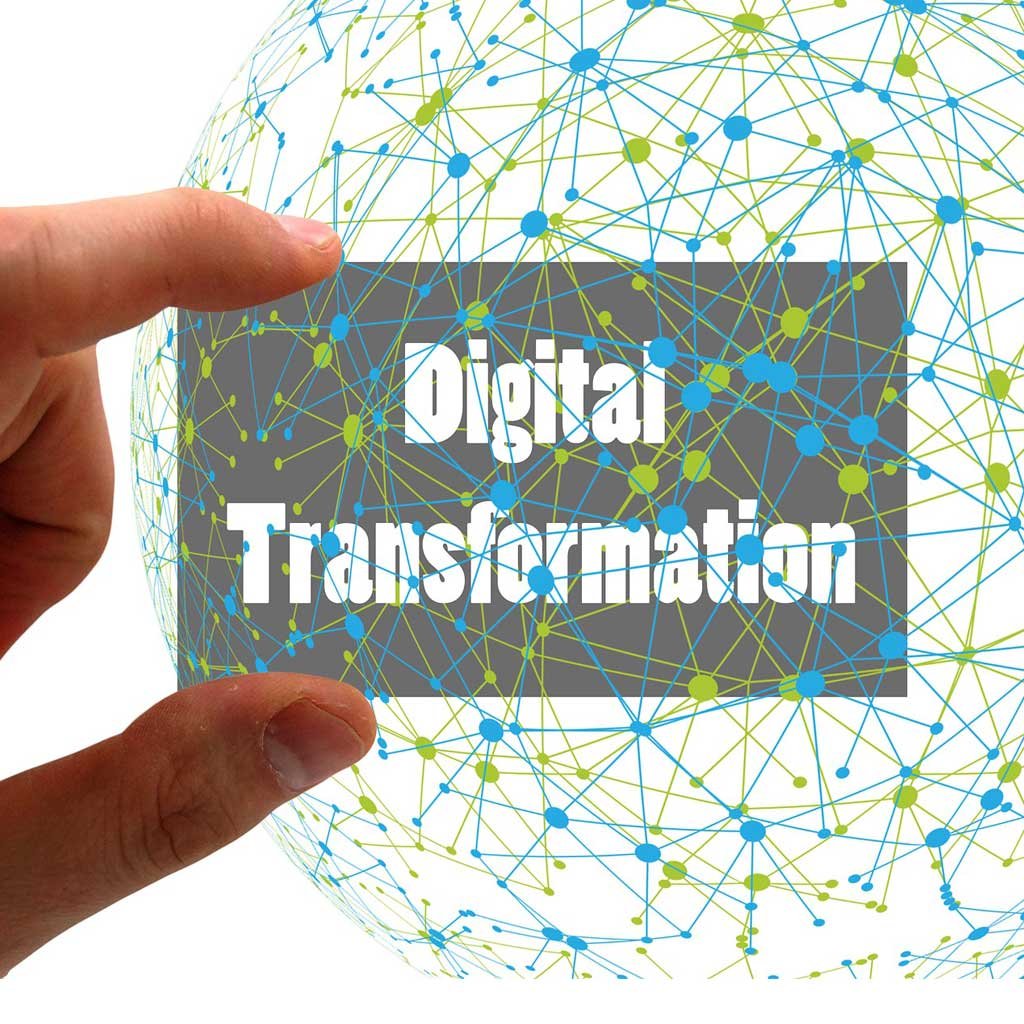Emerging Trends in Digital Transformation for the Healthcare Industry

The healthcare industry has been undergoing a profound transformation fueled by digital technologies. From telemedicine and electronic health records to artificial intelligence and wearable devices, digital innovations are revolutionizing how healthcare services are delivered, accessed, and managed. This comprehensive analysis explores the emerging trends in digital transformation for the healthcare industry, encompassing technological advancements, regulatory changes, patient-centric care models, and future outlook.
Introduction to Digital Transformation in Healthcare
Digital transformation in healthcare refers to the integration of digital technologies into the entire healthcare ecosystem to improve patient outcomes, enhance operational efficiency, and drive innovation. It encompasses a wide range of technologies and initiatives aimed at digitizing healthcare processes, empowering patients, and transforming care delivery models. As the healthcare landscape continues to evolve, several emerging trends are reshaping the future of healthcare delivery and management.
Telemedicine and Virtual Care
Telemedicine and virtual care have emerged as key enablers of digital transformation in healthcare, particularly in light of the COVID-19 pandemic. These technologies leverage telecommunication and digital platforms to facilitate remote consultations, diagnosis, monitoring, and treatment. With the rise of telemedicine platforms and mobile health apps, patients can access healthcare services from the comfort of their homes, reducing the need for in-person visits and improving access to care, especially in rural and underserved areas. Moreover, telemedicine enables healthcare providers to deliver personalized care, manage chronic conditions, and engage patients in self-care management, leading to improved health outcomes and patient satisfaction.
Electronic Health Records (EHRs) and Health Information Exchange (HIE)
The adoption of electronic health records (EHRs) and health information exchange (HIE) systems continues to accelerate as healthcare organizations seek to digitize patient records, improve care coordination, and enhance interoperability. EHRs enable healthcare providers to access comprehensive patient information, including medical history, test results, medications, and treatment plans, at the point of care. Health information exchange facilitates the secure exchange of patient data between healthcare providers, ensuring seamless transitions of care and reducing medical errors. As interoperability standards evolve and interoperability frameworks mature, EHRs and HIE systems will play a central role in enabling data-driven decision-making, care collaboration, and population health management.
Artificial Intelligence (AI) and Machine Learning (ML)
Artificial intelligence (AI) and machine learning (ML) are revolutionizing healthcare by enabling predictive analytics, clinical decision support, and personalized medicine. AI algorithms analyze large volumes of healthcare data, including electronic health records, medical images, genomics data, and sensor data, to identify patterns, predict outcomes, and optimize treatment strategies. Machine learning algorithms learn from real-world data and clinical experiences, enabling healthcare providers to tailor interventions to individual patient needs, optimize resource allocation, and improve clinical workflows. With the advent of AI-powered diagnostic tools, virtual assistants, and predictive analytics platforms, AI and ML are driving innovation across various domains of healthcare, including disease diagnosis, drug discovery, population health management, and precision medicine.
Internet of Medical Things (IoMT) and Wearable Devices
The Internet of Medical Things (IoMT) and wearable devices are transforming healthcare delivery by enabling continuous monitoring, remote patient monitoring, and proactive health management. IoMT devices, such as smartwatches, fitness trackers, and medical sensors, collect real-time physiological data, such as heart rate, blood pressure, glucose levels, and activity levels, from patients in their everyday environments. This data provides valuable insights into patient health status, medication adherence, and disease progression, empowering healthcare providers to intervene early, prevent complications, and personalize treatment plans. Moreover, wearable devices facilitate patient engagement, self-monitoring, and lifestyle modifications, promoting healthier behaviors and improving overall wellness.
Blockchain Technology and Health Data Security
Blockchain technology holds great promise for enhancing health data security, privacy, and interoperability in the healthcare industry. By creating tamper-proof and decentralized ledgers, blockchain enables secure and transparent storage and exchange of health data, protecting patient privacy and confidentiality. Blockchain-based solutions, such as patient identity management systems, health data sharing platforms, and supply chain tracking systems, enhance data integrity, authentication, and auditability across the healthcare ecosystem. Moreover, blockchain facilitates data portability, enabling patients to own and control their health data and share it securely with healthcare providers, researchers, and other authorized entities. As healthcare organizations grapple with the challenges of data security and interoperability, blockchain technology offers a promising solution for addressing these issues and fostering trust in the healthcare system.
Personalized Medicine and Genomics
Advancements in genomics, bioinformatics, and precision medicine are driving the shift towards personalized approaches to healthcare. By analyzing individuals’ genetic makeup, lifestyle factors, and environmental influences, healthcare providers can tailor treatment plans to each patient’s unique characteristics, preferences, and risks. Genomic sequencing technologies enable the identification of genetic variations associated with disease susceptibility, drug response, and treatment outcomes, allowing for more targeted interventions and improved therapeutic efficacy. Personalized medicine holds the potential to revolutionize disease prevention, diagnosis, and treatment across a wide range of conditions, including cancer, cardiovascular disease, rare genetic disorders, and infectious diseases. As genomic technologies become more accessible and affordable, personalized medicine is poised to become a cornerstone of modern healthcare delivery.
Regulatory Changes and Policy Initiatives
Regulatory changes and policy initiatives play a crucial role in shaping the landscape of digital transformation in healthcare. Governments and regulatory agencies worldwide are introducing new regulations and guidelines to promote the adoption of digital health technologies, protect patient privacy, and ensure the safety and efficacy of digital health solutions. For example, the Health Insurance Portability and Accountability Act (HIPAA) in the United States sets standards for the protection of sensitive patient information, while the General Data Protection Regulation (GDPR) in the European Union regulates the processing and storage of personal data. Additionally, initiatives such as the 21st Century Cures Act in the United States and the Digital Health Strategy in the European Union aim to accelerate innovation, improve access to digital health tools, and advance interoperability standards. By staying abreast of regulatory changes and compliance requirements, healthcare organizations can navigate the complexities of digital transformation and ensure the ethical and responsible use of digital technologies in healthcare delivery.
Patient-Centric Care Models and Consumerization of Healthcare
The shift towards patient-centric care models and the consumerization of healthcare are driving forces behind digital transformation in the healthcare industry. Patients are increasingly taking an active role in managing their health and seeking personalized, convenient, and transparent healthcare experiences. Digital health technologies empower patients to access health information, communicate with healthcare providers, schedule appointments, and manage chronic conditions using mobile apps, patient portals, and telehealth platforms. Moreover, consumer-oriented health technologies, such as wearables, home monitoring devices, and wellness apps, enable individuals to track their health metrics, set wellness goals, and make informed lifestyle choices. By embracing patient-centric care models and embracing a consumer-centric mindset, healthcare organizations can enhance patient engagement, satisfaction, and loyalty, while improving health outcomes and reducing healthcare costs.
Future Outlook and Challenges
Looking ahead, the future of digital transformation in the healthcare industry holds immense promise, along with several challenges and considerations. As technology continues to advance and new innovations emerge, healthcare organizations must navigate issues related to data privacy, interoperability, cybersecurity, regulatory compliance, and workforce readiness. Additionally, addressing health disparities, bridging the digital divide, and ensuring equitable access to digital health solutions remain critical priorities for healthcare stakeholders worldwide. By fostering collaboration, innovation, and resilience, healthcare organizations can harness the power of digital transformation to address these challenges and deliver high-quality, patient-centered care to individuals and communities around the globe.
Digital transformation is reshaping the healthcare industry in unprecedented ways, driving innovation, improving patient outcomes, and enhancing healthcare delivery models. From telemedicine and artificial intelligence to wearables and personalized medicine, emerging technologies are revolutionizing how healthcare services are delivered, accessed, and managed. By embracing these emerging trends and navigating the complexities of digital transformation, healthcare organizations can unlock new opportunities for growth, efficiency, and patient-centered care in the digital age. As the healthcare landscape continues to evolve, collaboration, agility, and a commitment to continuous improvement will be essential for realizing the full potential of digital transformation in improving health and well-being worldwide.

